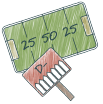Menu

CALL FOR A FREE CONSULTATION
Exceptional Legal Representation Throughout
Long Island and New York, Since 1993.

CALL FOR A FREE CONSULTATION
Exceptional Legal Representation Throughout
Long Island and New York, Since 1993.









Foreclosure Attorneys in Brooklyn and Queens
Foreclosure solutions vary and must be customized and combined to suit each client’s unique circumstances, ensuring the best chance of saving their home.

Many homeowners have fallen behind on their mortgages due to the 2020 recession triggered by the coronavirus. Initially, lenders were understanding and granted temporary suspensions on late payments. However, as arrears have worsened over time, many lenders now require a resolution—either through a lender-approved modification or a gradual reinstatement plan that typically extends beyond a year.
These new foreclosure risks arise while the lingering effects of the 2008–2014 crisis continue to impact foreclosure cases, particularly in Brooklyn and New York. That crisis stemmed from overly aggressive mortgage borrowing and lending, leaving behind unresolved foreclosure cases and homeowners still struggling with mortgage issues rooted in the past recession.
Now, due to the economic instability caused by the Covid-19 recession, many homeowners find themselves in arrears or facing foreclosure in a market that has yet to recover fully. Some of these mortgage struggles are new, stemming from pandemic-related furloughs, layoffs, and lockdowns, while others have been ongoing for years but have worsened due to the recent downturn.
What makes this potential crisis even more concerning is that it is unfolding before the previous foreclosure wave has been fully resolved. However, despite these challenges, homeowners may have better chances of keeping their homes due to various programs, policies, court rulings, and laws—many established during the last recession and some recently introduced in response to the Covid-19 crisis.
Homeowners facing foreclosure or already in the foreclosure process must seek reliable legal advice as soon as possible. An attorney specializing in foreclosure can provide clarity on available options, as the guidance from mortgage lenders may often be misleading or inaccurate.

A common strategy to prevent foreclosure involves a combination of defense and negotiation. Homeowners facing mortgage arrears or foreclosure must gain both time and leverage to maximize their chances of successfully saving their home. Various foreclosure remedies—such as bankruptcy, negotiated settlements, mortgage modifications, and foreclosure lawsuit defense—often overlap and reinforce one another. Our firm represents clients in all types of foreclosure proceedings.
Under New York State’s one-action rule, lenders must choose between seeking a money judgment or foreclosing on the secured property. They may later pursue a more limited right to recover any shortfall.
Lenders may prefer a money judgment when the property lacks sufficient equity—such as in cases where a secondary mortgage is subordinate to an under-secured first mortgage. However, foreclosure is typically pursued when there is significant equity in the property to support the lender’s claim. The choice between these remedies affects numerous rights and legal considerations, making foreclosure defense a crucial aspect of protecting homeowners.

There are several foreclosure solutions available, each depending on different circumstances. These include:
We guide and defend our clients at every stage of the foreclosure process, evaluating options based on their goals and the current status of foreclosure proceedings. To help clients determine the best solution, we ask key questions:
Available Foreclosure Solutions
1. Negotiated Mortgage Modification Agreement
Before and during foreclosure, homeowners can negotiate a loan modification to make payments more manageable. This may involve:
A successful modification can prevent foreclosure, but since lenders are not required to agree, legal actions may sometimes be necessary alongside negotiation.
2. Litigated Foreclosure Defense
Once a homeowner is served with a Summons and Complaint, they have 20 to 30 days to file a response or motion to dismiss. Foreclosure defense involves:
Litigation focuses on identifying flaws in the foreclosure process, slowing it down to give the homeowner more time and leverage for negotiations.
3. Chapter 13 Bankruptcy: Repayment Plan for Mortgage Arrears
Unlike mortgage modifications, Chapter 13 bankruptcy is a court-enforced plan that immediately halts foreclosure through an automatic stay. Under this plan:
This is ideal for those who need an immediate stop to foreclosure but can afford the repayment schedule.
4. Voluntary Sale of the Property (Short Sale)
If the home is “underwater”—meaning the mortgage balance is higher than its market value—a short sale may be an option. This requires:
If approved, the lender accepts the lower amount as full payment, preventing foreclosure.
5. Refinancing the Property
If the homeowner has sufficient equity, refinancing the mortgage or securing a reverse mortgage could help pay off arrears and avoid foreclosure.
6. Chapter 7 Bankruptcy: Debt Elimination
Many homeowners facing foreclosure also struggle with other debts. Filing Chapter 7 bankruptcy can:
This is beneficial for those needing debt relief to afford future mortgage payments.
 The Law Office of Ronald D. Weiss, P.C. can file an application on behalf of a client in a foreclosure action that has been ongoing and is approaching a foreclosure auction. In appropriate cases, this may include filing an Emergency Order to Show Cause, an emergency Chapter 13, or a Chapter 7 bankruptcy case to halt the foreclosure sale. These legal measures aim to protect the client’s rights and provide additional time to resolve their financial situation or pay off their debt.
The Law Office of Ronald D. Weiss, P.C. can file an application on behalf of a client in a foreclosure action that has been ongoing and is approaching a foreclosure auction. In appropriate cases, this may include filing an Emergency Order to Show Cause, an emergency Chapter 13, or a Chapter 7 bankruptcy case to halt the foreclosure sale. These legal measures aim to protect the client’s rights and provide additional time to resolve their financial situation or pay off their debt.
Most foreclosure cases involve residential properties where homeowners or borrowers have fallen behind on their mortgage payments. Typically, these loans have a 30-year term with either fixed or adjustable interest rates, depending on market conditions at the time of origination. However, not all foreclosures follow this standard pattern. Any lienholder or secured lender with a real estate interest may initiate foreclosure.
At The Law Office of Ronald D. Weiss, P.C., we specialize in real estate law, foreclosure defense, bankruptcy law, mortgage modifications, negotiations, and estate administration matters. Our expertise allows us to assist clients in various foreclosure situations. Below are some common alternatives to standard foreclosure scenarios:
1) Reverse Mortgage Foreclosures
Reverse mortgages allow seniors above a certain legal age to borrow against their home’s equity without monthly payments. Instead, repayment is due upon the borrower’s passing. While reverse mortgages help seniors manage finances, foreclosure risks arise if the borrower fails to pay property taxes or maintain the home.
Foreclosure can also occur after the borrower’s death if heirs cannot refinance or sell the property in time to repay the loan. In such cases, we defend foreclosure actions on behalf of debtors and their heirs, exploring options such as Chapter 13 bankruptcy, refinancing, or selling the property.
2) Business Loan Foreclosures
Small business owners often secure loans with their personal residences as collateral. If they experience financial hardship and fall behind on payments, they risk foreclosure. Unlike standard home loans, business loans often have higher interest rates and stricter terms.
We assist borrowers in defending against foreclosure by negotiating with lenders, exploring restructuring options, and ensuring all possible remedies are exhausted to protect their home.
3) Tax Lien Foreclosures
Many senior homeowners, despite paying off their mortgages, struggle with high real estate taxes. Even with NYS STAR tax relief programs, financial difficulties or declining health may cause tax payment arrears, leading to foreclosure.
We frequently defend tax lien foreclosures and represent clients in court to protect their homes. In many cases, filing Chapter 13 bankruptcy helps homeowners repay arrears over 60 months, preventing foreclosure.
4) Judgment Lien Foreclosures
Homeowners often have debts beyond their mortgages. If creditors win a lawsuit, unsecured debt can become a judgment lien against the property. In severe cases, the court may allow foreclosure based on the judgment lien.
We defend clients in court proceedings, negotiate settlements, and work to vacate unfair default judgments to protect their homes.
5) Condominium and Gated Community Foreclosures
Condo units and gated community homes can face foreclosure due to mortgage defaults. However, process service issues arise because legal notices may not be directly delivered to homeowners. If served to a doorman, security guard, or front desk, it raises questions about the validity of the foreclosure notice.
We challenge improper service and defend homeowners in foreclosure actions involving condominiums and gated communities.
6) Home Improvement Loan Foreclosures
Aggressive lenders often target seniors and low-income communities with high-interest home improvement loans, sometimes providing subpar renovation services. Failure to repay can lead to foreclosure.
We defend such lawsuits by challenging the loan terms, the legitimacy of the services provided, and the credibility of the businesses involved. We also negotiate settlements to prevent foreclosure.
7) Foreclosure Due to the Death of the Borrower
When a homeowner passes away without a will, surviving family members may struggle to claim ownership, causing the mortgage to go into default. This complicates foreclosure proceedings, as lenders must determine and serve legal heirs before taking action.
We assist families by handling estate administration, determining rightful ownership, and defending foreclosure actions. If a will exists, we expedite legal procedures to transfer ownership, allowing the new owner to pursue loan modifications, Chapter 13 bankruptcy, or other foreclosure-prevention options.
For families with multiple heirs, coordinating with lenders can be difficult, and foreclosure defense strategies become more complex. Our office specializes in resolving such matters through litigation, surrogate court representation, and negotiations to preserve homeownership.

The governor of New York State, the state court system, and the FHA implemented moratoriums that effectively prevented lenders from proceeding with foreclosures. Additionally, New York State courts remained closed until May 4, 2020. Upon reopening, they initially refused to accept foreclosure action documents and treated foreclosures and evictions differently from other legal proceedings.
Between mid-March 2020 and January 2022, various federal and state moratoriums and restrictions in New York discouraged or outright prohibited foreclosure lawsuits. Since 2021, courts have allowed defendants to submit a COVID Hardship Affidavit, which provides protection unless the plaintiff requests a hearing to determine whether the defendant is truly facing COVID-19-related hardships before allowing the foreclosure to proceed.
During times of national crisis, these moratoriums and related measures have provided relief to borrowers struggling to make mortgage payments, helping them regain financial stability. The last foreclosure and eviction moratorium imposed by New York State ended on January 15, 2022, allowing foreclosure proceedings to resume. While the broad scope of the moratorium included many foreclosures unrelated to COVID-19, it has resulted in a backlog of complex mortgage cases. Under normal circumstances, lenders would have been better positioned to process foreclosures more efficiently.
During the mandatory pause in foreclosure proceedings, mortgage borrowers had additional time to reinstate, modify, or otherwise address their mortgage arrears. However, most lenders and borrowers opted for forbearance agreements, which often allowed nonpayment for up to 18 months without requiring immediate repayment. In addition to lender-initiated forbearance, New York State’s Rule 9-X mandated that lenders either modify COVID-related arrears or defer them to the end of the loan term.
Furthermore, in January 2022, New York State established a $530 million Homeowner Assistance Fund, using federal aid to help homeowners behind on mortgage payments. Eligible homeowners could receive up to $50,000 per household to address COVID-19-related financial hardships. For more information, visit: Syracuse.com.

When attempting to prevent foreclosure, a homeowner’s success largely depends on the expertise of their attorney. Since 1993, we have successfully defended numerous homeowners facing foreclosure in Brooklyn and Queens. We have also helped many regain financial stability and ultimately save their homes.
Homeowners facing foreclosure have several legal options, but these must be pursued correctly and in a timely manner. The foreclosure process must be properly followed to resolve and/or stop proceedings, and legal remedies are limited in both frequency and method.
Let us help you protect your home with our compassionate, affordable, and knowledgeable legal assistance.
Our consultations are free, and the advice could be invaluable.
Contact us today at (631) 250-4120 or email weiss@ny-bankruptcy.com to discuss your legal options for stopping or preventing foreclosure.
MONDAY – FRIDAY -8.30 AM – 8.30 PM